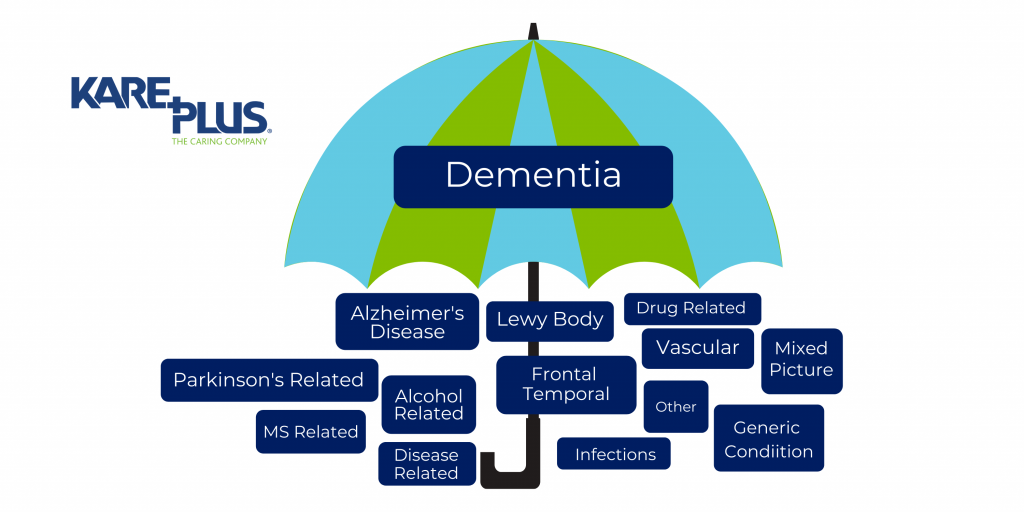What Actually is Dementia? #DementiaActionWeek
Thursday, May 27th, 2021 | Uncategorized
The word “dementia” is something we hear banded around within the Homecare sector with many businesses stating that they specialise in Dementia when, often this is simply not the case. We also hear it used and may even have used it ourselves as a broad stroke term, often used to reference or express a momentary lack of memory or ability to retain thoughts. In some cases, people make light-hearted reference to thinking themselves or someone else has Dementia. The truth is that for the many millions of people living with some form of Dementia or supporting someone with some form of Dementia, life can be very challenging indeed.
What actually is Dementia?
Dementia is not a specific disease; but is rather a general term for the impaired ability to remember, think, or indeed make decisions that result in an interference with completing everyday activities or thought processes. Whilst Alzheimer's disease is probably one of the most common types of dementia, it should be remembered that it is not the only type and that whilst dementia mostly affects older adults, it is categorically not part of the normal aging process.
Often families and individuals are either struggling with no diagnosis or have a diagnosis but may not always understand what this actually means in day-to-day terms.
Getting a proper assessment and diagnosis is always the start:
The first step in supporting anyone; is in ensuring that a diagnosis is achieved and that it is a professional diagnosis.
If you are in any way concerned about your own memory, or you are worried about changes you have noticed with memory, communication, personality, or behaviour of someone close to you, it is important to consult a GP as soon as possible, so that an accurate diagnosis can be made.
Of course, the other benefit of going to your GP for a professional assessment is that it can actually identify potentially treatable conditions that may initially look like dementia but are not. For example: depression, an underactive thyroid, a vitamin B12 deficiency, even delirium which can be caused by a medical condition such as an infection, or simply the side effects of some medicines can all affect a person’s alertness, memory, or brain function.
Dementia Care Resources and links to advice:
Below are just a small sample of the many excellent resources around this topic, all of which provide excellent links, resources, and signposting in not only supporting improved understanding, but for advice and guidance on obtaining a diagnosis through to supporting the individual and learning how to work with anyone who may be living with or coming to terms with the results of such.
https://www.alzheimers.org.uk/
https://www.alzscot.org/ (Alzheimer’s Scotland)
https://www.nhs.uk/conditions/dementia/
https://www.scie.org.uk/dementia/living-with-dementia/keeping-active/activity-resources.asp

















